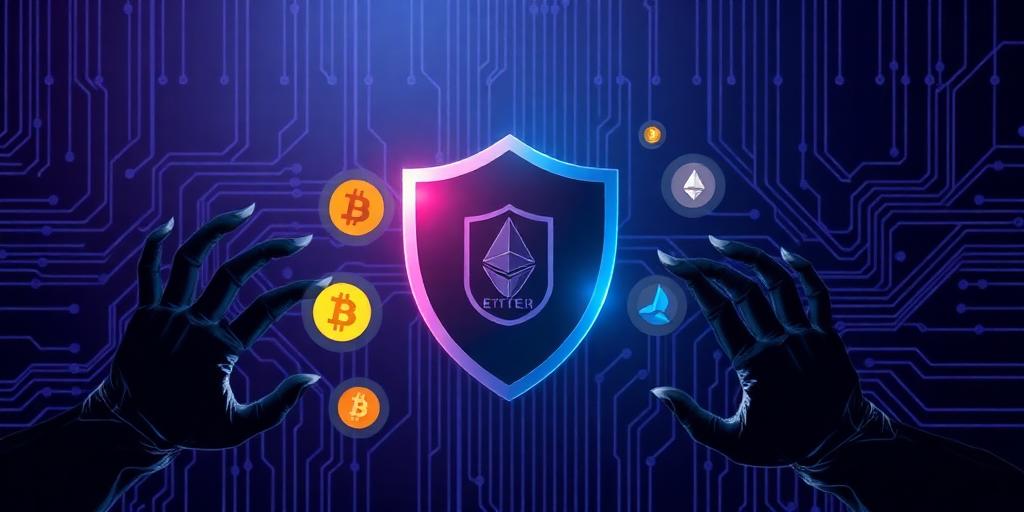Comprehensive Guide: How to Secure Your Crypto Assets from Hackers
In the rapidly evolving landscape of digital finance, the security of your cryptocurrency assets is paramount. As the value and adoption of cryptocurrencies grow, so too do the sophistication and frequency of cyber threats. Protecting your digital wealth from malicious actors is not merely a recommendation; it is an imperative. Unlike traditional financial systems, transactions on the blockchain are often irreversible, placing the full burden of security squarely on the individual investor. This guide will provide an authoritative overview of essential strategies and best practices to safeguard your crypto assets against hacks and theft.
The Non-Negotiable Fundamentals: Strong Authentication
The first line of defense against unauthorized access to your crypto accounts begins with robust authentication. Overlooking these basic steps significantly compromises your security posture.
- Strong, Unique Passwords: Utilize complex passwords for all cryptocurrency-related accounts, including exchanges, wallet interfaces, and email. These passwords should be long, combine uppercase and lowercase letters, numbers, and symbols, and critically, be unique to each service. Never reuse passwords.
- Two-Factor Authentication (2FA): Implement 2FA on every platform that supports it. While SMS-based 2FA offers a minimal layer of protection, hardware-based 2FA solutions like YubiKey or authenticator apps (e.g., Google Authenticator, Authy) are significantly more secure. This adds a critical second layer, ensuring that even if your password is compromised, access remains restricted.
The Gold Standard: Hardware Wallets (Cold Storage)
For significant crypto holdings, hardware wallets represent the highest echelon of security. These physical devices store your private keys offline, making them impervious to online hacking attempts.
- Offline Key Storage: Hardware wallets, often referred to as 'cold storage,' keep your private keys isolated from internet-connected devices. This means that even if your computer is compromised with malware, your private keys remain secure on the device.
- Transaction Verification: Transactions must be manually verified and confirmed on the device itself, providing an essential physical barrier against remote manipulation.
- Trusted Brands: Invest in reputable hardware wallets from established manufacturers like Ledger or Trezor. Always purchase directly from the official manufacturer to avoid tampered devices.
Managing Active Holdings: Software Wallets (Hot Wallets) & Best Practices
While hardware wallets are ideal for long-term storage, software wallets (desktop, mobile, or browser extensions) offer convenience for active trading or smaller amounts. Prudent management is key here.
- Limit Exposure: Only keep the amount of cryptocurrency you intend to actively use or trade in a hot wallet. Treat hot wallets like a physical wallet—you wouldn't carry your entire life savings in it.
- Reputable Providers: Choose well-regarded software wallets with strong security track records. Research their history, community feedback, and security audits.
- Regular Backups: Always back up your seed phrase (recovery phrase) securely and offline. This phrase is the master key to your funds; losing it means losing your crypto, and anyone who finds it can access your funds. Store it in multiple, secure, physical locations.
- Verify Addresses: Double-check wallet addresses before sending funds. Malware can alter copied addresses in your clipboard, redirecting your funds to a hacker's wallet.
Vigilance Against Social Engineering and Scams
Many successful crypto hacks don't involve exploiting technical vulnerabilities but rather human ones.
- Phishing Awareness: Be extremely skeptical of unsolicited emails, messages, or websites asking for your private keys, seed phrase, or login credentials. Always verify the legitimacy of URLs directly, rather than clicking links. Phishing scams are a pervasive threat to digital assets.
- Avoid Public Wi-Fi for Transactions: Public Wi-Fi networks are often unsecured and can be easily intercepted, making them unsafe for accessing crypto exchanges or wallets.
- Scam Identification: Be wary of









